Navigating the GMO Maize
Controversy in Nigeria.
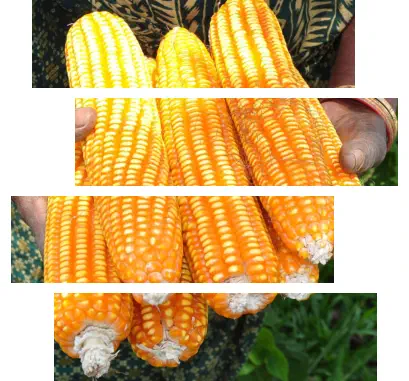

Service Offerings
Smallholder Financing Accessible Mechanization Post Harvest Solutions Commodity Trading Climate Smart Agriculture InclusionHead Office
Tel: +234 815 728 9590 Email: info@supertechfoods.com Web: www.supertechfoods.com Address: Plot 155, Okotie Eboh Street, Utako District, FCT Abuja.
© Copyright 2024
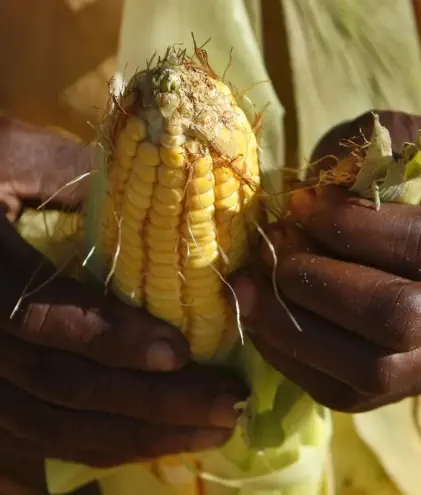
1. Introduction
Overview of Project Tela Project Tela is an agricultural initiative aimed at introducing genetically modified (GM) maize varieties in Nigeria. These maize varieties, developed through biotechnology, are designed to be insect-resistant and drought-tolerant. The project is a collaborative effort involving the Institute for Agricultural Research (IAR), international organizations such as the International Maize and Wheat Improvement Center (CIMMYT), and funding from entities like the Bill and Melinda Gates Foundation and USAID. The primary objective of Project Tela is to enhance maize production, reduce dependency on chemical pesticides, and improve food security in Nigeria (ISAAA - AFRICENTER). Context and Significance of GMO Maize in Nigeria Nigeria's agricultural sector is crucial for its economy and food security. However, it faces significant challenges, including pest infestations and climate change impacts, which severely affect crop yields. Traditional maize varieties are particularly vulnerable to pests like stem borers and fall armyworms, leading to substantial crop losses. TELA maize, with its enhanced resistance to these pests and tolerance to drought, offers a promising solution to these challenges, potentially transforming Nigeria's agricultural landscape and contributing significantly to national food security goals.2. Background on GMO Crops
Definition and History of GMO Crops Genetically modified organisms (GMOs) are organisms whose genetic material has been altered using genetic engineering techniques. The history of GMOs dates back to the early 1970s with the development of recombinant DNA technology. In agriculture, GMOs were first commercialized in the mid-1990s, with the introduction of herbicide-resistant soybeans and insect-resistant corn. These advancements have since expanded to various crops, including maize, cotton, and canola, aimed at improving yield, resistance to pests, and tolerance to environmental stresses. General Benefits and Controversies Associated with GMOs Proponents of GMOs argue that they offer numerous benefits, such as increased crop yields, reduced reliance on chemical pesticides, and enhanced nutritional content. These advantages can lead to improved food security and economic benefits for farmers. However, GMOs have also been the subject of significant controversy. Critics raise concerns about potential health risks, environmental impacts, and socio-economic issues, such as corporate control over the food supply and the displacement of traditional farming practices. The debate over GMOs involves complex scientific, ethical, and economic considerations.3. Project Tela: Objectives and Implementation
Goals of Project Tela The primary goal of Project Tela is to introduce maize varieties that are resistant to pests and tolerant to drought, thereby increasing productivity and reducing losses. This initiative aims to enhance food security, improve farmers' livelihoods, and reduce the environmental impact of pesticide use. Key Stakeholders and Their Roles Project Tela involves various stakeholders, including the IAR, the National Biosafety Management Agency (NBMA), international research organizations like CIMMYT, and funding bodies such as the Bill and Melinda Gates Foundation. These entities collaborate to develop, test, and regulate the new maize varieties. The project also engages local farmers, NGOs, and other stakeholders to ensure the successful implementation and adoption of the new maize varieties. Timeline of the Project and Approval Process The development of TELA maize began several years ago with extensive field trials and research. The varieties underwent rigorous testing for environmental and health safety. The NBMA granted environmental release approval in October 2021, followed by the commercial release of four TELA maize varieties in January 2024. The approval process involved detailed risk assessments conducted by various scientific and regulatory bodies to ensure the safety and efficacy of the new maize varieties.4. Benefits of TELA Maize
Agricultural Productivity and Economic Impact TELA maize has shown a yield advantage of up to 19% in field trials, which could significantly boost maize production in Nigeria. It is estimated that the adoption of TELA maize could save Nigeria over USD 600 million annually in pesticide costs and generate additional economic benefits of USD 140 million. This increase in productivity and reduction in input costs can enhance the profitability of maize farming and contribute to the overall economic growth of the agricultural sector. Environmental Benefits, Including Pesticide Reduction One of the key benefits of TELA maize is its resistance to pests like stem borers and fall armyworms, reducing the need for chemical pesticides. This can lead to lower environmental pollution and healthier ecosystems, as well as reduced health risks for farmers exposed to these chemicals (Alliance for Science). By decreasing pesticide use, TELA maize promotes more sustainable farming practices and protects beneficial insects and soil microorganisms essential for maintaining soil health and biodiversity. Potential for Food Security Improvements By increasing maize yields and reducing crop losses due to pests, TELA maize can play a crucial role in enhancing food security in Nigeria. Higher productivity can ensure a more stable food supply and potentially lower food prices, benefiting consumers and contributing to national food security objectives (ISAAA - AFRICENTER). This is particularly important in a country like Nigeria, where maize is a staple food crop, and improving its availability can significantly impact the nutrition and well-being of the population.5. Concerns and Controversies
Health and Environmental Risks Critics of TELA maize highlight potential health risks associated with GMOs, including allergies and other long-term health effects. Environmental concerns include the potential for soil degradation, loss of biodiversity, and unintended consequences on non-target species. The long-term impacts of GMOs on human health and the environment are still not fully understood, leading to calls for more comprehensive and independent studies. Impact on Soil Health and Biodiversity There are concerns that GMOs like TELA maize could negatively impact soil health and biodiversity. The reliance on a single crop variety may lead to monocultures, which can decrease soil fertility and make ecosystems more vulnerable to pests and diseases. Additionally, the potential for cross-contamination with non-GMO crops poses a threat to biodiversity and the integrity of traditional crop varieties. Socio-Economic Implications for Local Farmers and Communities Adopting GMO crops could increase dependency on multinational seed companies, potentially undermining traditional farming practices and local seed sovereignty. There are also fears that the benefits of TELA maize may not reach small-scale farmers, exacerbating socio-economic inequalities. Critics argue that the introduction of GMOs may favor large-scale industrial agriculture at the expense of smallholder farmers who form the backbone of Nigeria's agricultural sector. Sovereignty and Reliance on Foreign Entities The introduction of TELA maize has raised concerns about Nigeria’s agricultural sovereignty. Critics argue that dependence on genetically modified seeds from foreign corporations could erode the country’s control over its food system and make it vulnerable to external economic pressures. This reliance on foreign technology and inputs could undermine local agricultural practices and compromise national food sovereignty.6. Regulatory and Safety Assessments
Overview of the Approval Process by the National Biosafety Management Agency (NBMA) The National Biosafety Management Agency (NBMA) is responsible for regulating the introduction of GMOs in Nigeria. The approval process for TELA maize involved a rigorous evaluation of its safety and efficacy. This process included environmental release approval granted in October 2021 and subsequent commercial release approval in January 2024. The NBMA emphasized the importance of transparency, safety, and unbiased decision-making throughout the evaluation process. Key Findings from Risk Assessments The NBMA, along with other regulatory bodies such as the National Agency for Food and Drug Administration and Control (NAFDAC) and the Standards Organisation of Nigeria (SON), conducted extensive risk assessments of TELA maize. These assessments focused on its environmental impact, potential health risks, and agronomic performance. The findings indicated that TELA maize met safety standards and posed no significant risks to human health or the environment when properly managed (ISAAA - AFRICENTER). Comparison with International Standards The regulatory framework for GMOs in Nigeria aligns with international standards set by organizations such as the Codex Alimentarius Commission and the International Plant Protection Convention. The NBMA’s evaluation process incorporated best practices from these organizations to ensure the safety and efficacy of TELA maize. This alignment with global standards helps facilitate international trade and cooperation in agricultural biotechnology.7. Perspectives from Various Stakeholders
Government and Scientific Community Viewpoints Government agencies and scientific institutions generally support the introduction of TELA maize, highlighting its potential benefits for food security, economic growth, and environmental sustainability. Scientists involved in the development of TELA maize emphasize its rigorous testing and the scientific evidence supporting its safety and efficacy. They argue that TELA maize can significantly reduce pesticide use and increase maize yields, contributing to national food security goals. (Alliance for Science). Farmers’ Experiences and Concerns Farmers’ responses to TELA maize are mixed. Some farmers appreciate the higher yields and reduced need for pesticides, which can lower production costs and increase profitability. However, others express concerns about the long-term impacts on soil health, biodiversity, and seed sovereignty. Small-scale farmers, in particular, worry about the potential dependency on multinational seed companies and the erosion of traditional farming practices. Reactions from Non-Governmental Organizations (NGOs) and Civil Society Groups NGOs and civil society groups are among the most vocal critics of TELA maize. Organizations like the Health of Mother Earth Foundation (HOMEF) and other advocacy groups argue that GMOs pose significant health and environmental risks. They call for more independent, long-term studies to assess these risks comprehensively. These groups also highlight socio-economic concerns, such as the impact on local farming communities and the potential loss of agricultural biodiversity (Homef).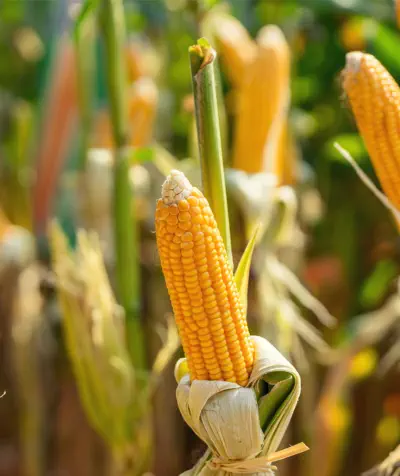
Conclusion
Summary of Key Points Project Tela represents a significant development in Nigeria’s agricultural sector, with the potential to address critical challenges related to pest infestations and climate change. The introduction of TELA maize offers numerous benefits, including increased agricultural productivity, reduced pesticide use, and improved food security. However, it also raises important concerns about health risks, environmental impacts, and socio-economic implications. Final Thoughts on the Way Forward for Nigeria’s Agricultural Sector The successful adoption of TELA maize and other GMOs in Nigeria will depend on the careful balancing of benefits and risks. This requires robust regulatory frameworks, transparent decision-making processes, and active engagement with all stakeholders. By addressing these challenges and leveraging advancements in biotechnology, Nigeria can enhance its agricultural productivity, ensure food security, and promote sustainable development. SuperTech Foods’ Perspective At SuperTech Foods, we recognize the transformative potential of agricultural innovations like TELA maize. Our commitment to enhancing agricultural practices and supporting farmers aligns with the goals of Project Tela. As we continue to invest in sustainable farming solutions, we emphasize the importance of rigorous safety assessments and transparent communication with all stakeholders to address public concerns. SuperTech Foods is dedicated to promoting food security and environmental sustainability through innovative technologies and partnerships. We believe that by working together with farmers, scientists, and policymakers, we can create a resilient and thriving agricultural sector in Nigeria and beyond. For more information on our initiatives and partnerships, visit our website and follow us on LinkedIn for the latest updates.
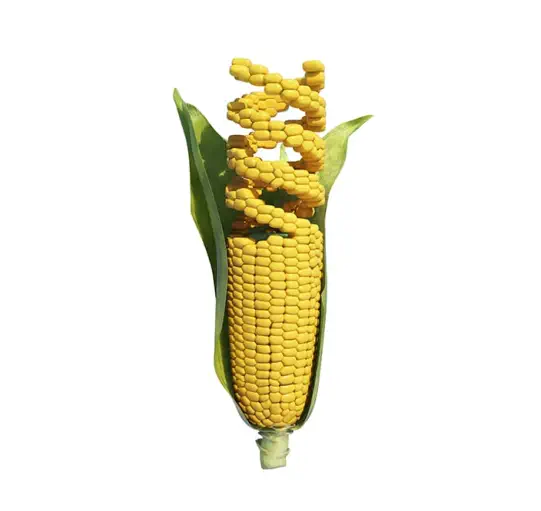
8. Case Studies and Comparisons
Examples from Other Countries Implementing Similar GMO Crops Several countries have successfully implemented GMO crops similar to TELA maize. For instance, South Africa has widely adopted GM white maize, which has resulted in significant increases in yield and reductions in pesticide use. The experience in South Africa demonstrates the potential benefits of GMOs in improving food security and economic stability. However, it also highlights the importance of robust regulatory frameworks and stakeholder engagement to address public concerns and ensure sustainable adoption. Comparative Analysis of Outcomes in These Regions In regions where GMOs have been adopted, studies have shown mixed outcomes. While there are clear benefits in terms of increased agricultural productivity and reduced pesticide use, there are also challenges related to environmental sustainability and socio- economic impacts. For example, in the United States, the widespread use of GM crops has led to concerns about herbicide resistance and the impact on non-target species. These case studies underscore the need for careful management and continuous monitoring of GM crops to maximize benefits and mitigate risks (ISAAA - AFRICENTER).9. Future Prospects and
Recommendations
Potential Advancements and Improvements in GMO Technology Advancements in genetic engineering, such as CRISPR and other gene-editing technologies, hold the potential to further improve GMO crops. These technologies can enhance precision in genetic modifications, reduce unintended consequences, and develop crops with desirable traits such as enhanced nutritional content, improved resistance to diseases, and better adaptation to climate change. Continued research and innovation in this field can lead to more sustainable and beneficial agricultural practices. Recommendations for Policy Makers and Stakeholders To ensure the successful and sustainable adoption of GMOs like TELA maize, policymakers and stakeholders should consider the following recommendations: Enhanced Transparency and Public Engagement: Increase transparency in the regulatory process and engage with all stakeholders, including farmers, NGOs, and the general public, to build trust and address concerns. Robust Regulatory Frameworks: Strengthen regulatory frameworks to ensure rigorous safety assessments and continuous monitoring of GMOs. Support for Small-Scale Farmers: Provide support to small- scale farmers to ensure they can benefit from GMOs without becoming overly dependent on multinational corporations. Promote Sustainable Agricultural Practices: Encourage the integration of GMOs into broader sustainable agricultural practices, such as crop rotation and integrated pest management, to maintain soil health and biodiversity. Strategies for Addressing Public Concerns and Enhancing Transparency Addressing public concerns about GMOs requires a multifaceted approach: Education and Outreach: Provide clear, evidence-based information about GMOs, their benefits, and risks to the public. Independent Research: Support independent, long-term research on the health and environmental impacts of GMOs. Labeling and Consumer Choice: Implement labeling policies that allow consumers to make informed choices about GMO products.







Navigating the GMO
Maize Controversy
in Nigeria.


Service Offerings
Smallholder Financing Accessible Mechanization Post Harvest Solutions Commodity Trading Climate Smart Agriculture InclusionHead Office
Tel: +234 815 728 9590 Email: info@supertechfoods.com Web: www.supertechfoods.com Address: Plot 155, Okotie Eboh Street, Utako District, FCT Abuja.
© Copyright 2024

1. Introduction
Overview of Project Tela Project Tela is an agricultural initiative aimed at introducing genetically modified (GM) maize varieties in Nigeria. These maize varieties, developed through biotechnology, are designed to be insect-resistant and drought- tolerant. The project is a collaborative effort involving the Institute for Agricultural Research (IAR), international organizations such as the International Maize and Wheat Improvement Center (CIMMYT), and funding from entities like the Bill and Melinda Gates Foundation and USAID. The primary objective of Project Tela is to enhance maize production, reduce dependency on chemical pesticides, and improve food security in Nigeria (ISAAA - AFRICENTER). Context and Significance of GMO Maize in Nigeria Nigeria's agricultural sector is crucial for its economy and food security. However, it faces significant challenges, including pest infestations and climate change impacts, which severely affect crop yields. Traditional maize varieties are particularly vulnerable to pests like stem borers and fall armyworms, leading to substantial crop losses. TELA maize, with its enhanced resistance to these pests and tolerance to drought, offers a promising solution to these challenges, potentially transforming Nigeria's agricultural landscape and contributing significantly to national food security goals.2. Background on GMO
Crops
Definition and History of GMO Crops Genetically modified organisms (GMOs) are organisms whose genetic material has been altered using genetic engineering techniques. The history of GMOs dates back to the early 1970s with the development of recombinant DNA technology. In agriculture, GMOs were first commercialized in the mid-1990s, with the introduction of herbicide-resistant soybeans and insect-resistant corn. These advancements have since expanded to various crops, including maize, cotton, and canola, aimed at improving yield, resistance to pests, and tolerance to environmental stresses. General Benefits and Controversies Associated with GMOs Proponents of GMOs argue that they offer numerous benefits, such as increased crop yields, reduced reliance on chemical pesticides, and enhanced nutritional content. These advantages can lead to improved food security and economic benefits for farmers. However, GMOs have also been the subject of significant controversy. Critics raise concerns about potential health risks, environmental impacts, and socio-economic issues, such as corporate control over the food supply and the displacement of traditional farming practices. The debate over GMOs involves complex scientific, ethical, and economic considerations.3. Project Tela: Objectives
and Implementation
Goals of Project Tela The primary goal of Project Tela is to introduce maize varieties that are resistant to pests and tolerant to drought, thereby increasing productivity and reducing losses. This initiative aims to enhance food security, improve farmers' livelihoods, and reduce the environmental impact of pesticide use. Key Stakeholders and Their Roles Project Tela involves various stakeholders, including the IAR, the National Biosafety Management Agency (NBMA), international research organizations like CIMMYT, and funding bodies such as the Bill and Melinda Gates Foundation. These entities collaborate to develop, test, and regulate the new maize varieties. The project also engages local farmers, NGOs, and other stakeholders to ensure the successful implementation and adoption of the new maize varieties. Timeline of the Project and Approval Process The development of TELA maize began several years ago with extensive field trials and research. The varieties underwent rigorous testing for environmental and health safety. The NBMA granted environmental release approval in October 2021, followed by the commercial release of four TELA maize varieties in January 2024. The approval process involved detailed risk assessments conducted by various scientific and regulatory bodies to ensure the safety and efficacy of the new maize varieties.4. Benefits of TELA Maize
Agricultural Productivity and Economic Impact TELA maize has shown a yield advantage of up to 19% in field trials, which could significantly boost maize production in Nigeria. It is estimated that the adoption of TELA maize could save Nigeria over USD 600 million annually in pesticide costs and generate additional economic benefits of USD 140 million. This increase in productivity and reduction in input costs can enhance the profitability of maize farming and contribute to the overall economic growth of the agricultural sector. Environmental Benefits, Including Pesticide Reduction One of the key benefits of TELA maize is its resistance to pests like stem borers and fall armyworms, reducing the need for chemical pesticides. This can lead to lower environmental pollution and healthier ecosystems, as well as reduced health risks for farmers exposed to these chemicals (Alliance for Science). By decreasing pesticide use, TELA maize promotes more sustainable farming practices and protects beneficial insects and soil microorganisms essential for maintaining soil health and biodiversity. Potential for Food Security Improvements By increasing maize yields and reducing crop losses due to pests, TELA maize can play a crucial role in enhancing food security in Nigeria. Higher productivity can ensure a more stable food supply and potentially lower food prices, benefiting consumers and contributing to national food security objectives (ISAAA - AFRICENTER). This is particularly important in a country like Nigeria, where maize is a staple food crop, and improving its availability can significantly impact the nutrition and well- being of the population.5. Concerns and
Controversies
Health and Environmental Risks Critics of TELA maize highlight potential health risks associated with GMOs, including allergies and other long-term health effects. Environmental concerns include the potential for soil degradation, loss of biodiversity, and unintended consequences on non-target species. The long-term impacts of GMOs on human health and the environment are still not fully understood, leading to calls for more comprehensive and independent studies. Impact on Soil Health and Biodiversity There are concerns that GMOs like TELA maize could negatively impact soil health and biodiversity. The reliance on a single crop variety may lead to monocultures, which can decrease soil fertility and make ecosystems more vulnerable to pests and diseases. Additionally, the potential for cross- contamination with non-GMO crops poses a threat to biodiversity and the integrity of traditional crop varieties. Socio-Economic Implications for Local Farmers and Communities Adopting GMO crops could increase dependency on multinational seed companies, potentially undermining traditional farming practices and local seed sovereignty. There are also fears that the benefits of TELA maize may not reach small-scale farmers, exacerbating socio-economic inequalities. Critics argue that the introduction of GMOs may favor large- scale industrial agriculture at the expense of smallholder farmers who form the backbone of Nigeria's agricultural sector. Sovereignty and Reliance on Foreign Entities The introduction of TELA maize has raised concerns about Nigeria’s agricultural sovereignty. Critics argue that dependence on genetically modified seeds from foreign corporations could erode the country’s control over its food system and make it vulnerable to external economic pressures. This reliance on foreign technology and inputs could undermine local agricultural practices and compromise national food sovereignty.6. Regulatory and Safety
Assessments
Overview of the Approval Process by the National Biosafety Management Agency (NBMA) The National Biosafety Management Agency (NBMA) is responsible for regulating the introduction of GMOs in Nigeria. The approval process for TELA maize involved a rigorous evaluation of its safety and efficacy. This process included environmental release approval granted in October 2021 and subsequent commercial release approval in January 2024. The NBMA emphasized the importance of transparency, safety, and unbiased decision-making throughout the evaluation process. Key Findings from Risk Assessments The NBMA, along with other regulatory bodies such as the National Agency for Food and Drug Administration and Control (NAFDAC) and the Standards Organisation of Nigeria (SON), conducted extensive risk assessments of TELA maize. These assessments focused on its environmental impact, potential health risks, and agronomic performance. The findings indicated that TELA maize met safety standards and posed no significant risks to human health or the environment when properly managed (ISAAA - AFRICENTER). Comparison with International Standards The regulatory framework for GMOs in Nigeria aligns with international standards set by organizations such as the Codex Alimentarius Commission and the International Plant Protection Convention. The NBMA’s evaluation process incorporated best practices from these organizations to ensure the safety and efficacy of TELA maize. This alignment with global standards helps facilitate international trade and cooperation in agricultural biotechnology.7. Perspectives from
Various Stakeholders
Government and Scientific Community Viewpoints Government agencies and scientific institutions generally support the introduction of TELA maize, highlighting its potential benefits for food security, economic growth, and environmental sustainability. Scientists involved in the development of TELA maize emphasize its rigorous testing and the scientific evidence supporting its safety and efficacy. They argue that TELA maize can significantly reduce pesticide use and increase maize yields, contributing to national food security goals. (Alliance for Science). Farmers’ Experiences and Concerns Farmers’ responses to TELA maize are mixed. Some farmers appreciate the higher yields and reduced need for pesticides, which can lower production costs and increase profitability. However, others express concerns about the long-term impacts on soil health, biodiversity, and seed sovereignty. Small-scale farmers, in particular, worry about the potential dependency on multinational seed companies and the erosion of traditional farming practices. Reactions from Non-Governmental Organizations (NGOs) and Civil Society Groups NGOs and civil society groups are among the most vocal critics of TELA maize. Organizations like the Health of Mother Earth Foundation (HOMEF) and other advocacy groups argue that GMOs pose significant health and environmental risks. They call for more independent, long-term studies to assess these risks comprehensively. These groups also highlight socio-economic concerns, such as the impact on local farming communities and the potential loss of agricultural biodiversity (Homef).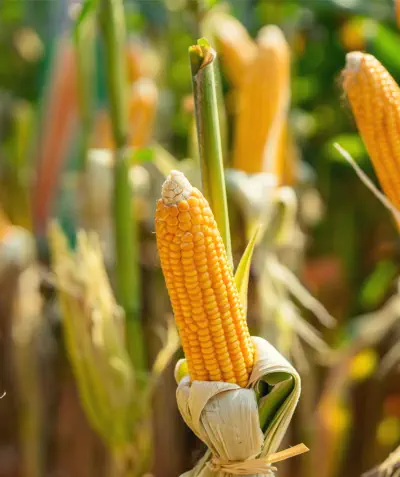
Conclusion
Summary of Key Points Project Tela represents a significant development in Nigeria’s agricultural sector, with the potential to address critical challenges related to pest infestations and climate change. The introduction of TELA maize offers numerous benefits, including increased agricultural productivity, reduced pesticide use, and improved food security. However, it also raises important concerns about health risks, environmental impacts, and socio-economic implications. Final Thoughts on the Way Forward for Nigeria’s Agricultural Sector The successful adoption of TELA maize and other GMOs in Nigeria will depend on the careful balancing of benefits and risks. This requires robust regulatory frameworks, transparent decision-making processes, and active engagement with all stakeholders. By addressing these challenges and leveraging advancements in biotechnology, Nigeria can enhance its agricultural productivity, ensure food security, and promote sustainable development. SuperTech Foods’ Perspective At SuperTech Foods, we recognize the transformative potential of agricultural innovations like TELA maize. Our commitment to enhancing agricultural practices and supporting farmers aligns with the goals of Project Tela. As we continue to invest in sustainable farming solutions, we emphasize the importance of rigorous safety assessments and transparent communication with all stakeholders to address public concerns. SuperTech Foods is dedicated to promoting food security and environmental sustainability through innovative technologies and partnerships. We believe that by working together with farmers, scientists, and policymakers, we can create a resilient and thriving agricultural sector in Nigeria and beyond. For more information on our initiatives and partnerships, visit our website and follow us on LinkedIn for the latest updates.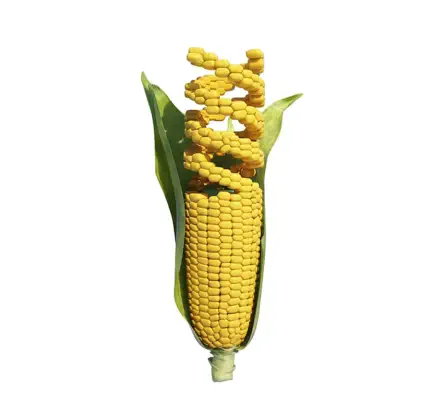
8. Case Studies and
Comparisons
Examples from Other Countries Implementing Similar GMO Crops Several countries have successfully implemented GMO crops similar to TELA maize. For instance, South Africa has widely adopted GM white maize, which has resulted in significant increases in yield and reductions in pesticide use. The experience in South Africa demonstrates the potential benefits of GMOs in improving food security and economic stability. However, it also highlights the importance of robust regulatory frameworks and stakeholder engagement to address public concerns and ensure sustainable adoption. Comparative Analysis of Outcomes in These Regions In regions where GMOs have been adopted, studies have shown mixed outcomes. While there are clear benefits in terms of increased agricultural productivity and reduced pesticide use, there are also challenges related to environmental sustainability and socio- economic impacts. For example, in the United States, the widespread use of GM crops has led to concerns about herbicide resistance and the impact on non-target species. These case studies underscore the need for careful management and continuous monitoring of GM crops to maximize benefits and mitigate risks (ISAAA - AFRICENTER).9. Future Prospects and
Recommendations
Potential Advancements and Improvements in GMO Technology Advancements in genetic engineering, such as CRISPR and other gene-editing technologies, hold the potential to further improve GMO crops. These technologies can enhance precision in genetic modifications, reduce unintended consequences, and develop crops with desirable traits such as enhanced nutritional content, improved resistance to diseases, and better adaptation to climate change. Continued research and innovation in this field can lead to more sustainable and beneficial agricultural practices. Recommendations for Policy Makers and Stakeholders To ensure the successful and sustainable adoption of GMOs like TELA maize, policymakers and stakeholders should consider the following recommendations: Enhanced Transparency and Public Engagement: Increase transparency in the regulatory process and engage with all stakeholders, including farmers, NGOs, and the general public, to build trust and address concerns. Robust Regulatory Frameworks: Strengthen regulatory frameworks to ensure rigorous safety assessments and continuous monitoring of GMOs. Support for Small-Scale Farmers: Provide support to small-scale farmers to ensure they can benefit from GMOs without becoming overly dependent on multinational corporations. Promote Sustainable Agricultural Practices: Encourage the integration of GMOs into broader sustainable agricultural practices, such as crop rotation and integrated pest management, to maintain soil health and biodiversity. Strategies for Addressing Public Concerns and Enhancing Transparency Addressing public concerns about GMOs requires a multifaceted approach: Education and Outreach: Provide clear, evidence-based information about GMOs, their benefits, and risks to the public. Independent Research: Support independent, long-term research on the health and environmental impacts of GMOs. Labeling and Consumer Choice: Implement labeling policies that allow consumers to make informed choices about GMO products.


































